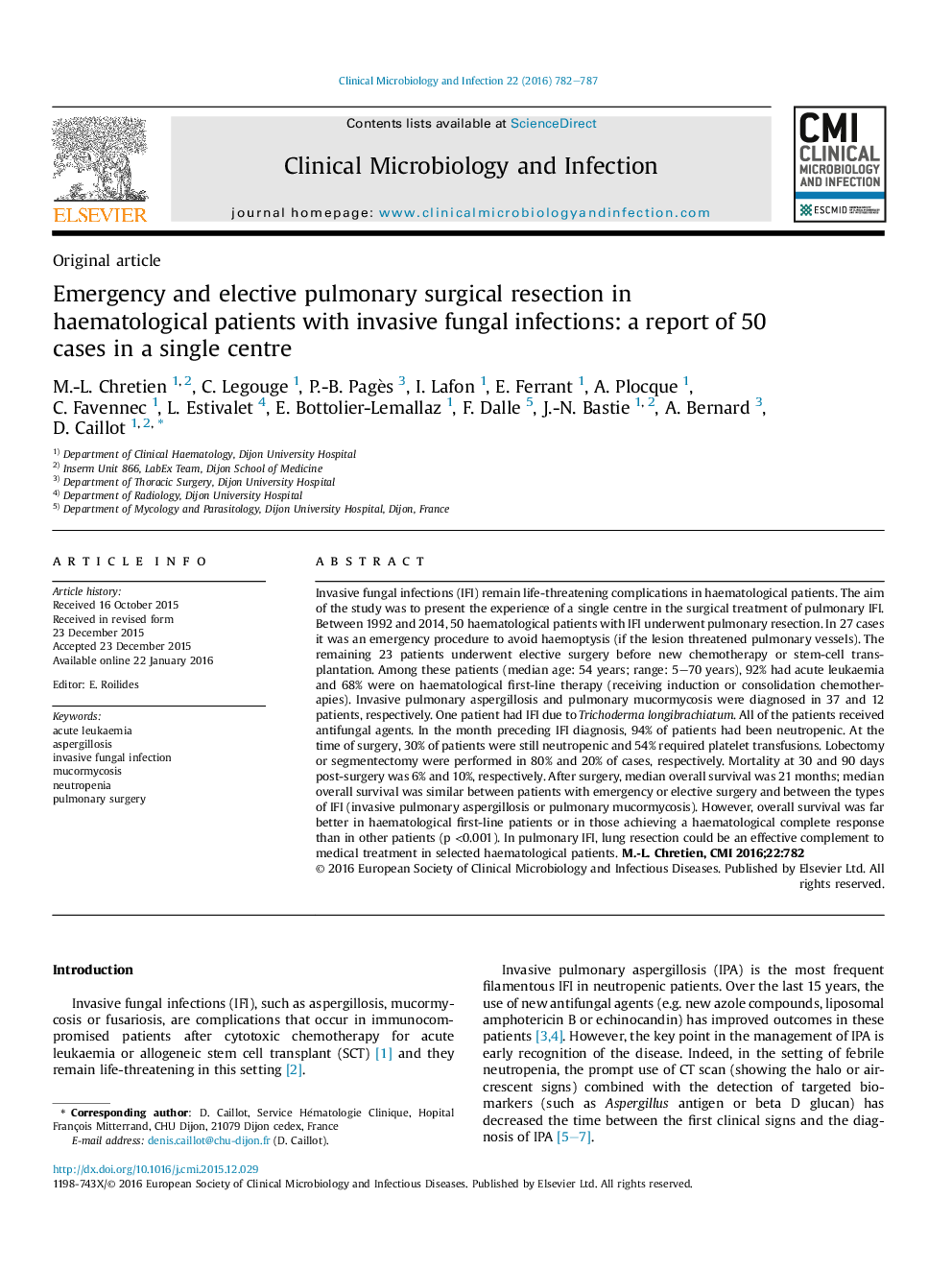| Article ID | Journal | Published Year | Pages | File Type |
|---|---|---|---|---|
| 5671892 | Clinical Microbiology and Infection | 2016 | 6 Pages |
Invasive fungal infections (IFI) remain life-threatening complications in haematological patients. The aim of the study was to present the experience of a single centre in the surgical treatment of pulmonary IFI. Between 1992 and 2014, 50 haematological patients with IFI underwent pulmonary resection. In 27 cases it was an emergency procedure to avoid haemoptysis (if the lesion threatened pulmonary vessels). The remaining 23 patients underwent elective surgery before new chemotherapy or stem-cell transplantation. Among these patients (median age: 54 years; range: 5-70 years), 92% had acute leukaemia and 68% were on haematological first-line therapy (receiving induction or consolidation chemotherapies). Invasive pulmonary aspergillosis and pulmonary mucormycosis were diagnosed in 37 and 12 patients, respectively. One patient had IFI due to Trichoderma longibrachiatum. All of the patients received antifungal agents. In the month preceding IFI diagnosis, 94% of patients had been neutropenic. At the time of surgery, 30% of patients were still neutropenic and 54% required platelet transfusions. Lobectomy or segmentectomy were performed in 80% and 20% of cases, respectively. Mortality at 30 and 90 days post-surgery was 6% and 10%, respectively. After surgery, median overall survival was 21 months; median overall survival was similar between patients with emergency or elective surgery and between the types of IFI (invasive pulmonary aspergillosis or pulmonary mucormycosis). However, overall survival was far better in haematological first-line patients or in those achieving a haematological complete response than in other patients (p <0.001). In pulmonary IFI, lung resection could be an effective complement to medical treatment in selected haematological patients.
